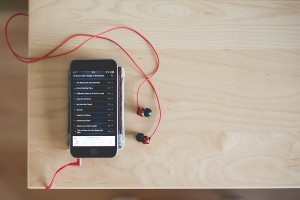#Leadership : Secrets of the Most #ProductivePeople – How to Check Email on Vacation and Still Enjoy Yourself…Smartphones Often Blur the Line Between Professional & Personal Life, so If you Must Check your #WorkEmail , Follow these Guidelines to Set Some Limits.
Let’s be real. If you’re going on vacation this summer, you’re probably going to check your email. More than 62% of travelers make it a point to check their work-related email and voice mail, according to a new poll by Travel Leaders Group, a travel agency.
 Email is a hard habit to break because we’re attached to technology, says Vicki Salemi, career expert for the job site Monster. “In most jobs, we never shut off, so going on vacation can be particularly challenging because you want to instantly disconnect once you put your ‘out of office’ on, but it’s not that easy for most,” she says. “You may feel like you’re missing out, or that a project will fall behind if you’re not constantly checking emails.”
Email is a hard habit to break because we’re attached to technology, says Vicki Salemi, career expert for the job site Monster. “In most jobs, we never shut off, so going on vacation can be particularly challenging because you want to instantly disconnect once you put your ‘out of office’ on, but it’s not that easy for most,” she says. “You may feel like you’re missing out, or that a project will fall behind if you’re not constantly checking emails.”
Smartphones often blur the line between your professional and personal life. You may be making reservation plans on your device and convince yourself that a quick perusal of work email to clean your inbox while you’re away won’t be so bad, Salemi adds. “Next thing you know, an hour has gone by, and you’re completely in the work zone when you should be detaching and relaxing instead,” she says.
Related: How to stop checking email on vacation
If you’re going to check it anyway, it helps to plan how it fits into your vacation, and to set limits.
PREPARE
A week before you leave, let colleagues and clients know you’ll be gone, giving them time to get information from you before you leave. Let key players know how to reach you in case of a true emergency, such as calling or texting immediately, to reduce your worries that you’re missing something urgent, says Elaine Varelas, managing partner of Keystone Partners, a career management firm.
“Make sure your out-of-office reminder is set with a note advising that you are away on holiday and will respond to email after your return,” she says. “And advise colleagues that unless the subject includes ‘please respond’ or ‘urgent,’ you will respond after your vacation.”
Delegate your projects and direct people elsewhere during your absence. Be specific in your out-of-office response, says Salemi. For example, “For billing inquires, contact [fusion_builder_container hundred_percent=”yes” overflow=”visible”][fusion_builder_row][fusion_builder_column type=”1_1″ background_position=”left top” background_color=”” border_size=”” border_color=”” border_style=”solid” spacing=”yes” background_image=”” background_repeat=”no-repeat” padding=”” margin_top=”0px” margin_bottom=”0px” class=”” id=”” animation_type=”” animation_speed=”0.3″ animation_direction=”left” hide_on_mobile=”no” center_content=”no” min_height=”none”][insert colleague’s name here]” or “For technology issues, contact [another colleague’s name here].”
Zapier is a tool that links the apps you use at work, such as Gmail, Asana, and Slack, to automate daily tasks. During vacation use it to automatically push inbound emails into Slack so the team can stay in the loop on external communications while someone is out of the office.
Like this Article ? Share It ! You now can easily enjoy/follow/share Today our Award Winning Articles/Blogs with Now Over 2.5 Million Growing Participates Worldwide in our various Social Media formats below:
FSC LinkedIn Network: www.linkedin.com/in/fscnetwork
Facebook: http://www.facebook.com/pages/First-Sun-Consulting-LLC-Outplacement-Services/213542315355343?sk=wall
Google+: https://plus.google.com/115673713231115398101/posts?hl=en
Twitter: Follow us @ firstsunllc
Question: Want the ‘the best/current articles/blogs on the web’ on Job Search, Resume, Advancing/Changing your Career, or simply Managing People?
Answer: Simply go to our FSC Career Blog below & type(#career, #leadership, #life) in Blog Search: https://www.firstsun.com/fsc-career-blog/
What Skill Sets do You have to be ‘Sharpened’ ?
Continue of article:
SET BOUNDARIES WHILE YOU’RE GONE
Check emails in the morning before anyone else is awake, says Varelas. “Do it alone, so others don’t feel overlooked or as if they aren’t your first priority during your planned time off,” she says.
Keep it short, says Salemi. “For example, 15 minutes in the morning and 15 minutes in the evening to only respond to emails that require action,” she says.
You may need an accountability partner, adds Salemi. “Make a pact with one of your travel mates that if they see you on your phone responding to a message that’s work-related—and yes, they can ask for you to hand over your phone to check—you owe them a small amount of money, such as $5 or $10,” she suggests.
Also decide where you’re allowed to check emails. “If you’re on a beach, on a boat, in a museum, don’t check emails, enjoy the moment and your surroundings,” says Salemi. “Only check emails when you shouldn’t be in the moment instead, like in your hotel room, on the balcony, or prior to working out.”
Related: A brilliant strategy to avoid checking emails on vacation: auto-delete them
DON’T ENGAGE
Reading email is different than responding to email. “As soon as you engage in any manner, such as forward, reply, or read triggering a message read-return receipt, people will start emailing more, assuming you are online,” says Varelas. “Do not encourage this.”
If you absolutely must respond, do it as efficiently as possible. “And certainly never after any alcohol becomes part of a vacation activity,” says Varelas. “Do not let any negative reaction to work email impact your mood with your vacation pals. They are on vacation, and wish you were, too.”
Related: The out-of-office template you should use this holiday season
PREPARE FOR RE-ENTRY
Organize your email as you scan it. Salemi suggest creating folders and move emails within certain categories into their respective folders such as “follow up,” “budgeting” or “the team.” This will help you handle it more efficiently when you return.
Then block out an hour at the top and bottom of your first day back, says Varelas. “Give yourself time to address the email that piled up while you were gone,” she says.
Unplugging from email—even if you just decreased the amount of time you usually spend—can help you enjoy your time away. “One of the most important things to remember is that studies have shown you’ll be more productive after you return from vacation if you’ve truly logged off to the best of your ability,” says Salemi. “Your boss and company will thank you, especially as your morale and creativity will hopefully be boosted after you’ve given yourself the time you needed to literally reboot.”
FastCompany.com | July 3, 2018 | BY STEPHANIE VOZZA 4 MINUTE READ
[/fusion_builder_column][/fusion_builder_row][/fusion_builder_container]








